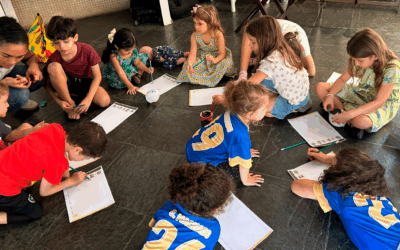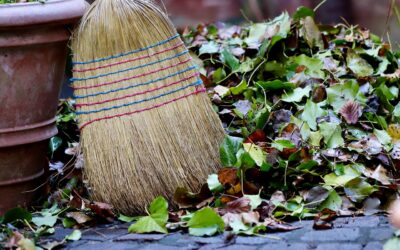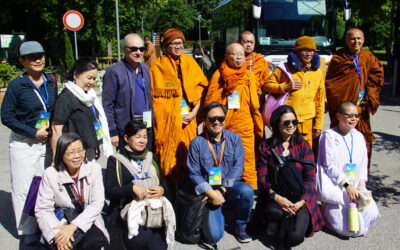“This morning we prayed the Lord’s Prayer for peace in Venezuela and in the world” writes kindergarten teacher, C. “When we finished the prayer a child came up to me and said: “Teacher, I was home with my Mum. She was in the garden banging the pan (the cacerolazo, which is used as an instrument of protest). Then some people approached on large motorcycles. We ran because they were firing on us.” My eyes filled with tears. This couldn’t be the country where I was born and raised!” 
Indeed, Venezuela has traditionally considered itself a land of brothers and sisters. Countless immigrants have found a home in this South American nation, creating a multi-ethnic society that is open, welcoming and fraternal. “Still,” C attempted to explain to her small students, “our country is so beautiful. It’s a gigantic home where everyone is our brother and sister.” This is why the scene of violence that has taken place over the past years seems so unnatural. The distress of the people has increased together with the growing socio-economic deterioration of the country which, in recent months, has reached levels never before seen.
From Caracas they write: “On February 12, 2014, National Day of Young People, peaceful demonstrations were held by students because of the serious social and economic problems: insecurity, lack of food and medicines, repression. Unfortunately, there was no willingness to listen and the situation degenerated into violence with several deaths and numerous wounded, because of the severe beatings.”
Within such a context the local Focolare community is aware that it has something to offer toward hope for peace. “Our gaze returns to the ideal beginnings of the Movement, to Chiara Lubich and the first group people during the Second World War when everything crumbled and only God remained (. . .) The situation in which we find ourselves now must not hold us back from witnessing to our Gospel ideal. We still have hearts with which to love, forgive and begin again. With this certainty we celebrated the tenth anniversary of “La Asociación La Perla” (The Pearl Association), an alternative education project that provides concrete ways of educating children according to a “pedagogy of reciprocity”. We wondered if it was appropriate to celebrate during such times, but the community unanimously agreed that we should. We held sporting and recreational events on the streets with families in an atmosphere of hope and joy. “This was like a ray of light amidst the storm,” said one participant.”
N., who has been physically limited because of serious illness, recounts how he lives through the present situation: “I pray for all the protestors, regardless of which trench they are in, especially for those who die. I said to Jesus: “I have no physical strength, no weapons, but I pray and offer my life so that they can find you before they die.” Two nights ago there was a large demonstration in front of my house, with cacerolas, shouting and chants. They set fire in the street and smoke was filling our home. My sister took my small nephew – who is also ill – to my bedroom. I invented ways to make him smile, to relax him a bit.”
These are delicate moments we are living. Pope Francis has invited all the faithful “to pray and work for reconciliation and peace.”




0 Comments